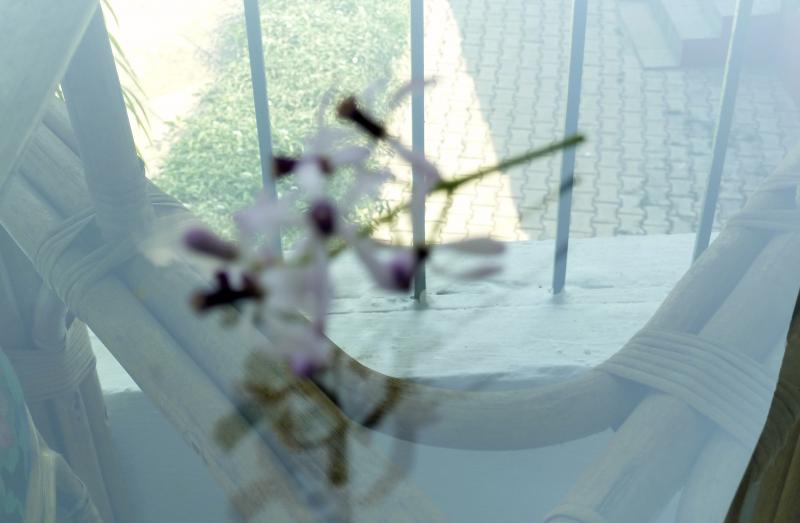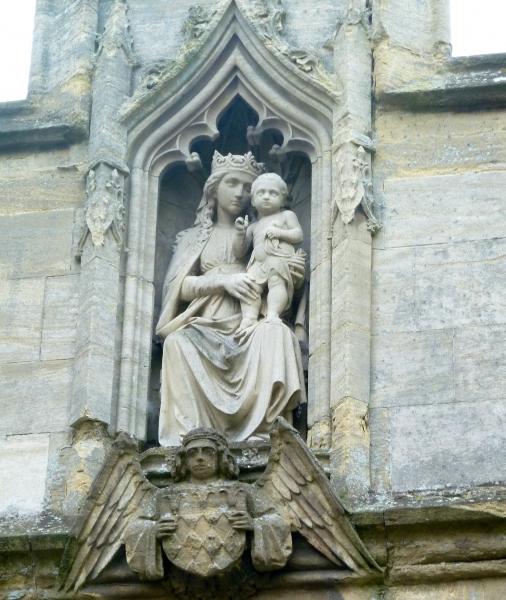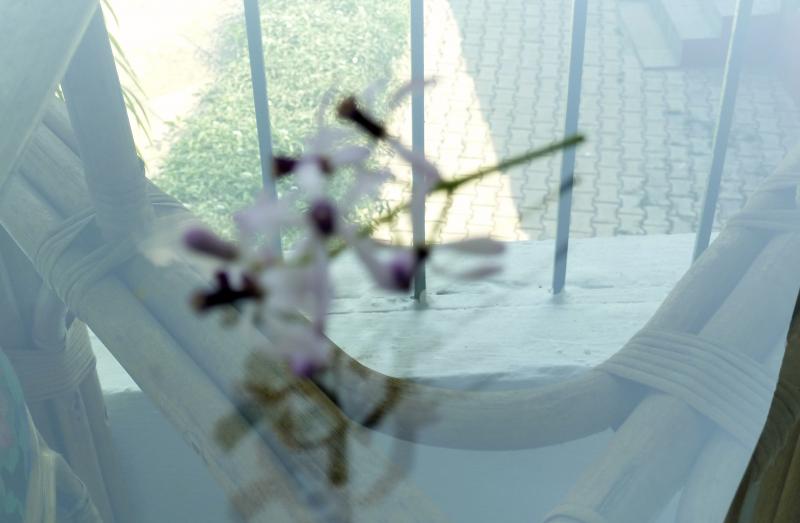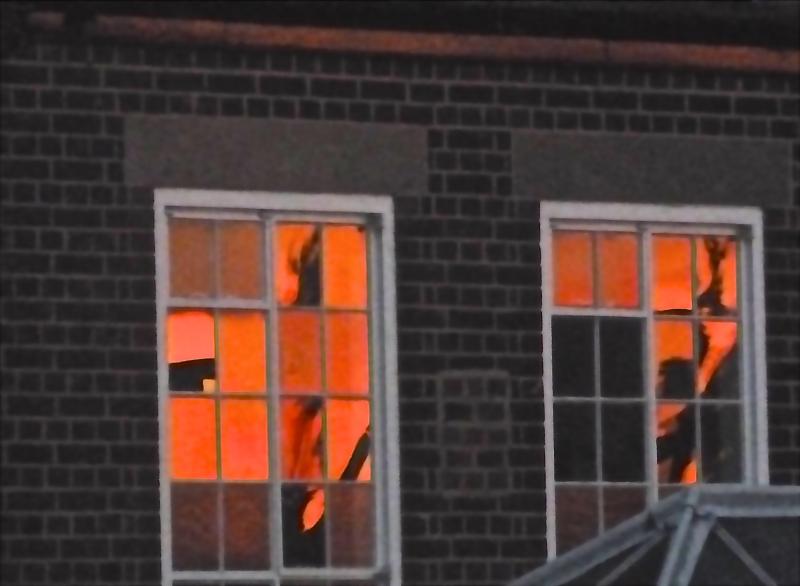 This Is Just To Say
This Is Just To Say
I have eaten
the plums
that were in
the icebox
And which
you were probably
saving
for breakfast
Forgive me
they were delicious
so sweet
and so cold
“What’s that poem by William Carlos Williams? The one I love?” And Laura, the delightfully whimsical wife who loves nothing more than painting black stripes on white and white circles on black, quotes the lines to her taciturn husband, the bus-driver poet (Adam Driver), named Paterson. They live in Paterson, New Jersey, which has seen better days but is now run-down, rusting, shabby and redeemed by the waterfall that used to generate power for the neighbouring factories.
By Passaic Falls, Monday to Saturday, the young bus-driver takes his packed lunch in an old-fashioned metal lunch box bites into a cupcake iced with black and white patterns and writes poems inspired by the great modernist Imagist, William Carlos Williams. One can imagine the peanut butter and jelly sandwich, traditional fare made by his exotic wife in the kitchen of their modest house. The house is not quite clapboard, but unpretentious and homely, with a few straggly flowers in the front yard. An ugly pug named Marvin has to be taken out for his evening constitutional, that doubles as Paterson’s outing to the neighbourhood bar where the bartender himself bears a resemblance to the pugnacious dog.
Patterns repeat: twins, conversations with a circular turn just like the cupcakes. Paterson wakes at the same time, eats his Cocopops, walks through the urbanscape, sits in his bus, pens a few phrases, listens to his supervisor’s complaints, drives the bus through the same streets. Conversations are caught like fish on a line, exchanges about girls who are gagging for it, junior anarchists chatting about revolution. The bus driver notes them and files them away. Nothing much happens day after day.
so much depends
upon
a red wheel
barrow
glazed with rain
water
beside the white
chickens
As in William Carlos Williams’s poetry, watching Laura and Paterson go about their ordinary lives is to capture the “immediacy” of the experience. “It’s an identifiable thing, and its characteristic, it’s chief character, is that it is sure, all of a piece and, as I have said, instant and perfect: it comes, it is there, and it vanishes. But I have seen it, clearly. I have seen it.” (Autobiography 1951)
Artless like the film, in Williams’ s poetry there is an unstated agreement with the watcher/reader. If you don’t get it, you don’t get it. https://www.youtube.com/watch?v=h3mgt8XiIKE.
Afterwards in the cinema foyer I heard earnest discussion about whether the bus-driver loved his wife or was bored by her and what was the significance of this or that. It was a wonderful feeling of complicity to know one had “got” the film and its characters and to come out into the cold air with the new conviction that ordinary was fine, boring routine was fine too and could co-exist with contentment, even happiness. Laura dreams vividly about the twins she is going to have. Paterson listens to her tenderly, not convinced but not dismissing her fantasies. We love him for that and we love Laura for supporting him . Surely the story will nosedive into tragedy or disaster, surely this gentle idyll is heading towards a dark episode, but no. The cunning Marvin is not dog-napped, the bickering young black couple in the bar will not kill each other. The pug faced bartender has a dreadful wife and the bus breaks down one day. “Will there be a fireball?” wonders a fearful passenger, but no it’s a harmless electrical fault even when Paterson shepherds a gaggle of kids on to the sidewalk to a safer waiting place.
We love him for that and we love Laura for supporting him . Surely the story will nosedive into tragedy or disaster, surely this gentle idyll is heading towards a dark episode, but no. The cunning Marvin is not dog-napped, the bickering young black couple in the bar will not kill each other. The pug faced bartender has a dreadful wife and the bus breaks down one day. “Will there be a fireball?” wonders a fearful passenger, but no it’s a harmless electrical fault even when Paterson shepherds a gaggle of kids on to the sidewalk to a safer waiting place.
But then there is a disaster. A catastrophe so complete that we are left bereft, stripped of hope, just like Paterson and his wife. The stupid and spiteful Marvin chews through the notebook in which Paterson writes his poems. The destruction of his life’s work is scattered on the floor like poisonous confetti. For some days he walks back and forth numbed by his pain and unable to respond to Laura’s ministrations. Then, through an improbable but not implausible, meeting with an inscrutable Japanese tourist night starts to give way to dawn in a manner that is quietly wonderful and we regain our composure and our faith in the laws of the universe.

The young William Carlos Williams
William Carlos Williams’s spirit is the one I brushed against in the sixties when I lived for a year in Marlboro, the homespun mountain hamlet in Vermont. Sturdy values, lumberjack shirts, poetry by the fireside, hiking in the snowy mountainside, fashioning wood with your hands, letting the moment speak for itself. Of course we had no phones or computers and wrote essays on Olivettis going clatter clatter. Williams practised as a doctor for forty years in the plain little town of Rutherford New Jersey where he wrote a five volume epic called Paterson characterized by “swift, uncluttered, functional phrasing” which found its “primary impetus in local conditions.” From his observations poetry developed, “it has fluttered before me for a moment, a phrase which I quickly write down on anything at hand…”
Richard Ellman, the noted critic called him “the most important literary doctor since Chekov.” ,
,
In his prefatory note to Paterson Williams explains “that a man himself is a city, beginning, seeking, achieving and concluding his life in ways which the various aspects of a city may embody-if imaginatively conceived- any city, all the details of which may be made to voice his most intimate convictions.”
Paterson, the New Jersey town, was once the “prototype of the American industrial community..the self-sustaining city of skills with the competitive energy and moral stamina to lift the burdens of the citizen and raise the livelihood with social and cultural benefits.” One hundred years later the poet recognized that the price of industrial progress in a mechanized society was the city slum. “The myth of American power was where this power was almost entirely evil, the destructive producer of an America grown pathetic and tragic, brutalized by inequality, disorganized by industrial chaos and faced with annihilation.” And Williams then sets out the task of the poet, to leave the erudition of the library and embrace everyday life. It was the antithesis to T.S. Eliot’s brahminic kind of poetry from which Williams felt excluded and snubbed.
In an antidote to the results of frustrated and impotent small towners who exercised their vote recently, Jim Jarmusch has given us a film which is sure to become a classic. The bus driver’s poems were written by a real poet of the New York school, Ron Padgett, and Jarmusch is an old-fashioned hippy who might have gone to Marlboro a few years after me.
He has succeeded in showing us American culture , which D.H. Lawrence (himself an admirer of Williams) analyzed: “there are two ways of being American, and the chief…is by recoiling into individual smallness and insentience, and gutting the great continent in frenzies of mean fear. It is the Puritan way. The other is by touch; touch America as she is; dare to touch her! And that is the heroic way.”
As William Blake might cry, Where now is the lie of the land?






























